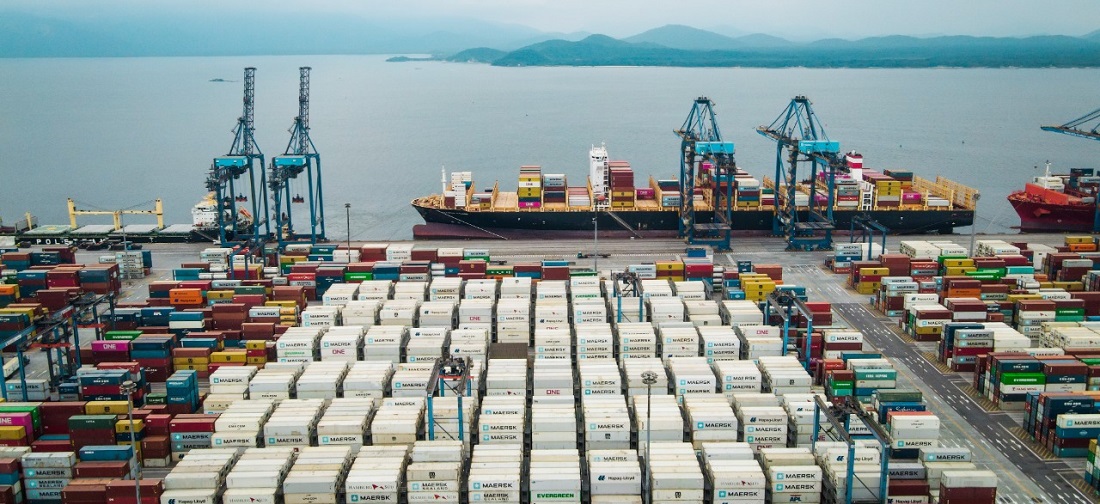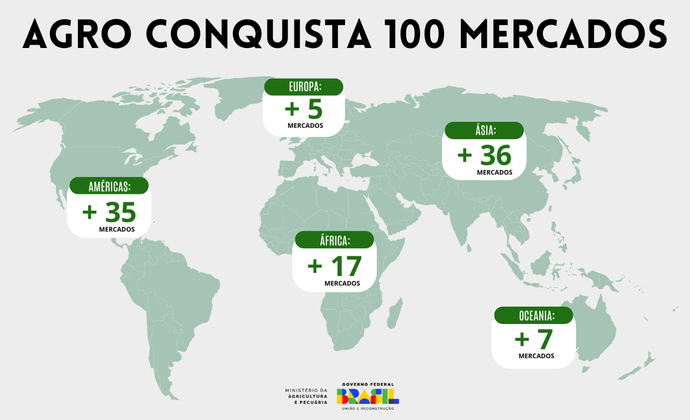
Brazilian Farming Sector Breaks New Ground: 100 Export Authorizations Granted to Untapped Markets
Mar, 20, 2024 Posted by Gabriel MalheirosWeek 202412
Brazil’s farming sector has reached a new historic milestone by conquering 100 new markets for exports since January 2023. In total, Brazil now has access to 49 countries for the exportation of agricultural and livestock products.
The Ministry of Agriculture and Livestock (Mapa) achieved the 100-markets milestone by negotiating Brazil’s entry into two new markets on Tuesday (19) in Egypt, namely exports of meats, meat products, and offal from goats and sheep.
According to the Minister of Agriculture and Livestock, Carlos Fávaro, these market openings stem from Brazil’s relevance on the global stage, support the international recognition of the country’s sanitary control system, and create a positive impact on the Brazilian economy.
“We are renewing our commercial partnerships abroad and increasing prospects for Brazilian farmers. It’s the chance producers have to access previously untapped opportunities. This generates demand; producers need to expand their businesses, resulting in more jobs and income nationwide,” he explained. “This scenario brings new opportunities, and we will work to grow [our chances] even further,” Fávaro added.
COUNTRIES
Market Openings
Of the 100 newly conquered markets, 36 are in Asia (including Saudi Arabia, China, India, Indonesia, Japan, Malaysia, and others); 35 in the Americas (including the United States, Mexico, Argentina, Chile, Colombia, and others); 17 in Africa (including Egypt, South Africa, Morocco, Kenya, and others); 7 in Oceania (including Australia, New Zealand, and others); and 5 in Europe (including the United Kingdom, Russia, Turkey, and others).
With a diverse range of export products, highlights include Brazilian cotton trade with Egypt; beef and pork with Mexico and Singapore; açaí juice with India; chicken with Israel and Algeria; papaya with Chile; rice with Kenya; seafood with Australia, Egypt, and South Africa; eggs with Russia; and green coffee with Zambia.
“This expansion not only strengthens Brazil’s agricultural presence on the global stage but also promotes sustainable development, income generation, and employment, directly benefiting farmers by offering new market opportunities for their products,” emphasized Roberto Perosa, Secretary of Commerce and International Relations.
The positive result is the fruit of joint efforts between the Ministry of Agriculture and Livestock (Mapa) and the Ministry of Foreign Affairs (MRE).
-
Dec, 31, 2021
0
Maersk’s Acquisition Of LF Logistics Is Said to Be ‘Significant Milestone’
-
Sugar and Ethanol
Sep, 20, 2022
0
Brazil to export record volume of ethanol to Europe this year -S&P Global
-
Meat
Feb, 27, 2023
0
Meat exports to return unimpaired by ‘mad cow’ disease by April, says association
-
Dec, 06, 2021
0
Chilean fisheries and aquaculture YTD exports to Brazil grew 59.7% by October



